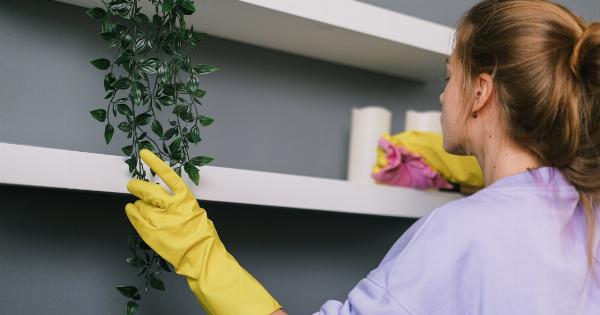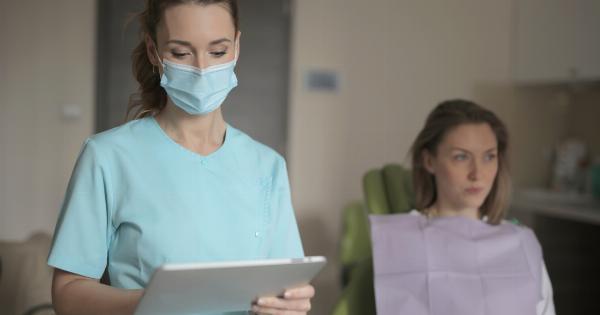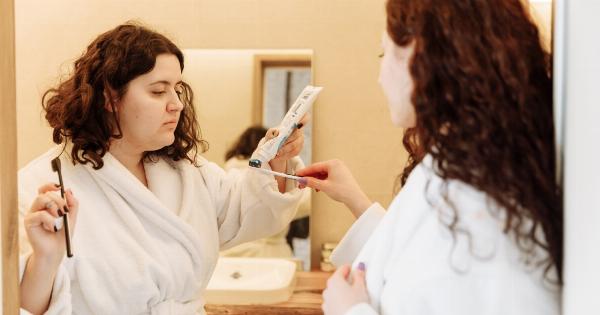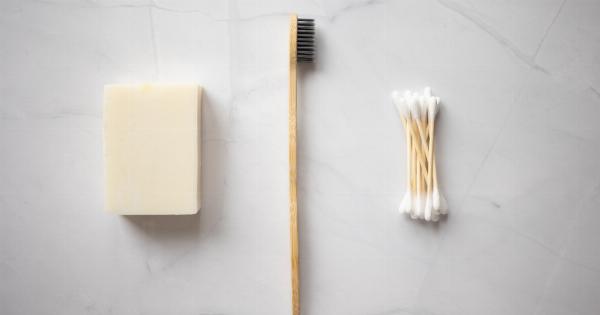For many of us, the morning and evening routine involves brushing our teeth and flossing. But which should come first? There is a debate on whether to floss or brush first for optimal dental hygiene.
Scientific research now supports one option over the other.
The argument for flossing first
Those in favor of flossing first believe that it helps dislodge food particles and plaque from between the teeth, which can then be brushed away.
They argue that brushing first can push the particles further into the crevices, making it more difficult to remove and potentially leading to tooth decay and gum disease.
A study conducted at the University of Gothenburg in Sweden found that when participants flossed before brushing, the amount of plaque on their teeth decreased by 38 percent more than when they brushed before flossing.
This supports the theory that flossing first can increase the efficacy of brushing by removing more debris beforehand.
Additionally, flossing first can help reduce the risk of bleeding gums during the process. When gums bleed, bacteria can enter the bloodstream, which can lead to other health issues.
By flossing first, the gums become less inflamed, and there is less chance of bleeding during brushing.
The argument for brushing first
Others believe that brushing first is the way to go. Their argument is that brushing can remove larger debris and loosen plaque, which can then be more effectively removed with flossing.
They argue that flossing first can push particles and bacteria further below the gumline, making it harder to remove and potentially causing damage to the gums over time.
A counter-argument to the study conducted at the University of Gothenburg is that the participants were given a specific type of toothbrush that may have limited the effectiveness of brushing beforehand.
Critics of flossing first also point out that some people find it difficult to floss before brushing because it can be uncomfortable and create excess saliva, which can be messy.
The conclusion from scientific research
A study published in the Journal of Periodontology sheds some light on this debate. The study found that both methods showed improvement in reducing plaque and gingivitis.
However, the study also found that brushing first was slightly more effective than flossing first in reducing plaque and gingivitis.
The researchers concluded that the order in which people brush and floss doesn’t play a significant role, as long as people do both consistently. However, brushing first was a slightly better option for reducing plaque buildup and gingivitis.
Tips for maintaining great oral hygiene
Whether you choose to brush or floss first, consistent care is essential for good oral hygiene. Here are some tips to ensure that you are taking the best care of your teeth:.
- Brush twice a day for at least two minutes each time
- Use fluoride toothpaste to strengthen enamel and fight tooth decay
- Floss at least once a day to remove debris that brushing alone can’t reach
- Rinse with mouthwash to kill bacteria and freshen breath
- Visit your dentist twice a year for checkups and cleanings
The Bottom Line: It doesn’t really matter what comes first
The good news is, whether you decide to brush or floss first, the most crucial thing is that you do them both consistently. Regular brushing and flossing are the keys to a healthy mouth, along with regular dental checkups.
A tremendous oral hygiene routine will clean your teeth, prevent cavities and gum disease, and keep your smile shining brightly.
























